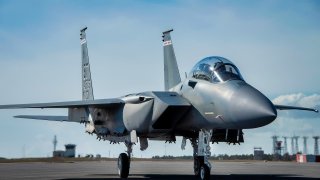Has World War III Already Begun?
Do the barbaric events of October 7, 2023, and the Israeli military campaign in Gaza prefigure a broader, global armed conflict?
Despite these ominous developments, the United States and its allies have generated one significant success and several potential successes in their attempt to thwart the designs of these autocratic Heartland regimes. In response to the war in Ukraine, Finland has joined NATO and Sweden’s accession has recently been approved by a parliamentary committee in Turkey (though not yet by the Turkish state). The anticipated consequence is to turn the Baltic Sea, but for the Russian naval base at Kaliningrad and St. Petersburg, into a NATO-dominated lake. In addition, should Ukraine manage to reverse Russian territorial conquests, secure its independence from Russia, and then join NATO and the EU, these events would represent an extension of European power. Meanwhile, Ukraine has had great success in driving the Russian Black Sea Fleet out of Crimea and into home ports further from Ukrainian missile launching sites; we have argued that before the war is over, the Ukrainians should be furnished with the means to sink the remainder of the fleet and destroy the shipyards. Ukrainian successes in attacking the Black Sea fleet have led the Russians to consider building a naval base in Ochamchire, Georgia. In the Middle East and Arabia, the United States almost succeeded in fostering an extension of the Abraham Accords to include Saudi Arabia. Finally, the Quadrilateral Security Dialogue (“Quad”) is a potential maritime alliance of India, Australia, Japan, and the United States that may, in the coming years, act to secure the free passage of shipping in the South China Sea and defend Taiwan. In short, across the maritime rim of Eurasia, the United States is slowly mobilizing partners and allies that are threatened by the revisionist and revanchist regimes of the Heartland.
Conclusion: Strategy and the Geopolitical Advantage
Our horrifying prediction, which may yet be fully realized, of a four-front war was made by attending to geopolitical theory, strategic history, and an intuition for how events might unfold. Regardless of whether China undertakes kinetic action against Taiwan, the United States and our allies now need to rush preparations for such a war at the highest possible priority. As we pointed out in the earlier article, being ready to fight a global, multi-front war is the only way to avert one.
Geopolitics provides the observer of international relations with several advantages. First, it is an interdisciplinary and integrative field of study that aims to capture aspects of reality that impinge on the evolution of international crises. Second, it juxtaposes persistent geographic structures, such as landed and maritime locations and activities, with trends and events, placing the ephemeral in the context of the enduring (here). Third, geography and geopolitics deploy particularizing and generalizing methods to understand the relationships of places to spaces, locations to regions, and nation-states to the international system. Fourth, geopolitics uses maps, including those generated by geographic information systems, to develop an appreciation of how states transform terrain into more favorable environments for the projection of power amid adversarial relationships, both potential and realized.
Geopolitics is as old an approach to international conflict as Thucydides, Sun Tse, and Kautilya. It may be that geopolitical analysis, if properly deployed, gives insight reminiscent of Galadriel’s Mirror, “For it shows things that were, and things that are, and things that yet may be.”
However, despite the advantages offered by geopolitical thought for the development of strategy, Mackinder is explicit (here): “Democracy refuses to think strategically unless and until compelled to do so for purposes of defense.” After at least a generation, now is the moment for Americans to once again use geopolitics to formulate strategy.
Acknowledgements: The authors thank the speakers and participants in the Mackinder Forum seminars and lectures for sharing their insights. Professors Brian Blouet, Athanasios Platias, Geoffrey Sloan, and Paul Rahe commented on an earlier draft of this paper. We are grateful for their thoughtful suggestions. Errors and misinterpretations remain ours.
About the Authors
Michael Hochberg earned his PhD in Applied Physics from Caltech and is currently a visiting scholar at the Centre for Geopolitics at Cambridge University. He is the President of Periplous LLC, which provides advisory services on strategy, technology, and organization design. He co-founded four companies, representing an exit value over a billion dollars in aggregate, spent some time as a tenured professor, and started the world’s first silicon photonics foundry service. He co-authored a widely used textbook on silicon photonics and has published work in Science, Nature, National Review, The Hill, American Spectator, RealClearDefense, Fast Company, Naval War College Review, etc.
Leonard Hochberg taught at Stanford University (among other institutions), was appointed a Fellow at the Hoover Institution, and co-founded Strategic Forecasting, Inc. (i.e., STRATFOR). He has published in Social Science History, The Journal of Interdisciplinary History, National Review, The Hill, American Spectator, RealClearDefense, Naval War College Review, Orbis, etc. Len Hochberg earned his PhD in political theory and European history at Cornell University. He is a Senior Fellow at the Foreign Policy Research Institute and serves as the Coordinator of the Mackinder Forum-U.S.
This article was first published by RealClearDefense.


